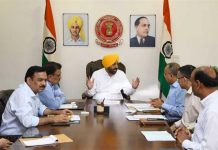Contradictory orders
Go through various court orders and it is inevitable that different courts interpret the same issue differently. In fact, most arguments by lawyers for the petitioners and defendants in a particular case quote portions from various judgments to prove their respective points.
Ultimately, it is the Supreme Court that gives the final interpretation. This is crucial to provide clarity about existing laws, and force the lawmakers to change them, if required. In a recent case, the apex court said that no tax could be deducted at source in the global transaction between the Hong Kong-based Hutch and Vodafone; it forced UPA-2 to introduce the controversial retrospective tax.
~Also Read~
[egpost postid=”233013″ byline=”false”]
Legal arbitrator
After the January decision, which gave huge relief to the MNCs, Attorney General Mukul Rohatgi said: “Firstly, I found that the judgment of the (Bombay) high court (in the Vodafone case) was legally correct. From the other point of view, there is an atmosphere of negativity and a general feeling that the government… are taking every matter up to the Supreme Court, whether big or small.”
Telecom Minister Ravi Shankar Prasad added: “The (Narendra) Modi government wants to convey a clear message to investors the world over that this is a government where decisions would be fair and transparent.” After the Vodafone order, Jaitley said: “Unsustainable demands won’t get you taxes. Unsustainable demands in the books can show you in good glory, but eventually those taxes will be blocked in some judicial court proceedings… They would have only earned us a bad name as an investment destination.”
If Rohatgi’s arguments are taken at face value, then any senior legal official, and the law minister and Cabinet, can arbitrarily decide which cases should be pursued till the end, and which ones should be given up midway. They can also dictate which cases should be fought at all. How can the lawmakers and executive gain such far-ranging judicial discretionary powers?
Surely, Prasad and Jaitley — both of them are lawyers — understand that the judiciary is a final arbitrator in legal disputes to decide what is fair and transparent. The previous regimes felt that coal block and spectrum allocations were fair and transparent; the apex court cancelled them. Similarly, an outsider cannot say whether a case can be won or lost in the courts of law; he or she cannot be the lawmaker and judge. This is the principle and philosophy behind an independent judiciary.
~Also Read~
[egpost postid=”233032″ byline=”false”]
Far-reaching precedents
Most cases that are entertained by the Supreme Court have manifold implications. The reason: apart from the immediate questions at hand, it tackles macro issues that deal with constitutional matters and public interest. In the gas asset dispute between the Ambani brothers in 2010, it ruled that natural resources belong to the citizens. In the recent ipl match-fixing case, it said that the bcci, a private society, has to heed the court’s advice since it managed cricket, which concerned the entire nation.
Similar broader issues cropped up in the Vodafone case. Can an Indian subsidiary of a foreign mnc issue shares to the latter at a discount? How can one decide what is a fair price for such deals? Don’t such transactions favour the mnc at the expense of its subsidiary? May be, if the case had gone to the Supreme Court, it would have given observations on these issues.
In the recent past, the country has debated judicial activism or the appropriation of legislative powers by the judiciary. Now we face the opposite scenario, where the legislature will indirectly decide what is legal or not. Both are wrong if taken to the extremes. However, today the people have to decide whether they have more faith in the judges or politicians and bureaucrats?
letters@tehelka.com












